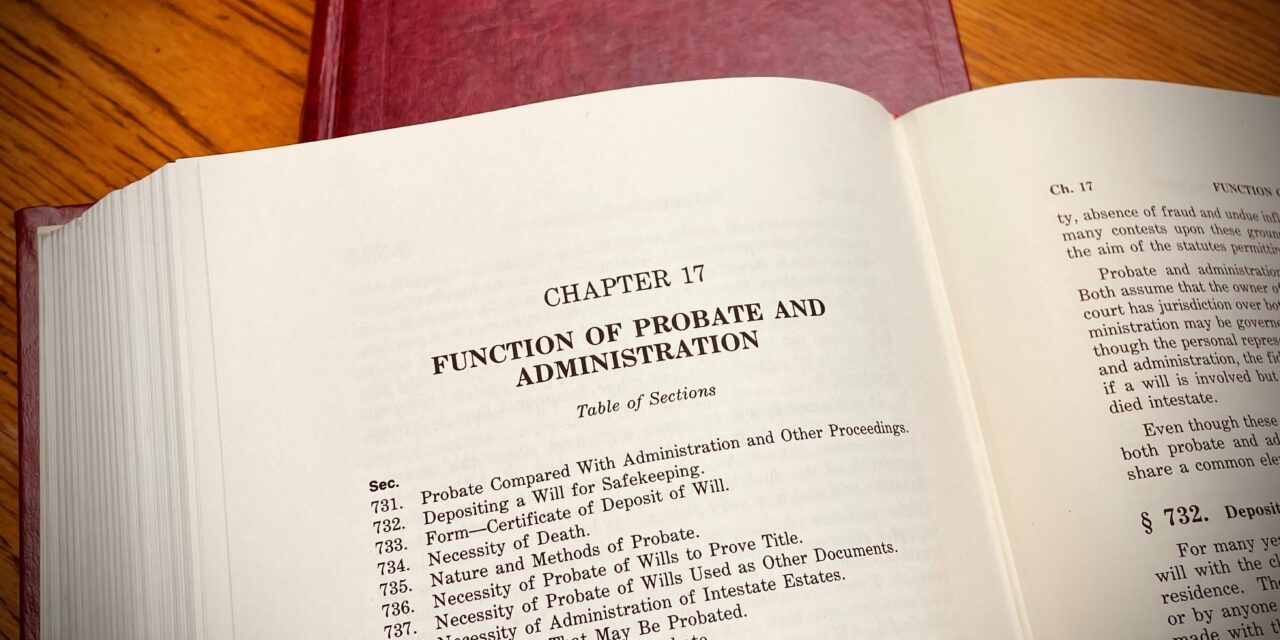Over the course of 20+ years of meeting with estate planning clients in Kentucky, the most common misperception I hear pertains to the probate process – what it is, what is does, and why we have it. It’s not surprising that probate remains a mystery to so many – it is not something taught in school, it often is bundled with discussions of death taxation (thus probate must be *bad* if it’s mentioned with taxes), and purveyors of pre-packaged (and quite expensive) living trusts stigmatize probate to boost the sales of their products.
Probate – What is it?
Probate can be viewed simply as a process that gives legal legitimacy to the transfer of assets. During my lifetime I can convey property, but after my death I cannot. Therefore, we must have some method that allows for the orderly (and legal) transfer of my assets. That’s what probate does, it grants legal effect to the transfer of my property.
Probate – What does it do?
As mentioned, probate allows the legal transfer of assets upon death … but to whom? Well, that depends. If I die *with* a Last Will and Testament, then my Will dictates who my beneficiaries are, and what property they will receive. If I die *without* a Will, then state law dictates who my beneficiaries are. Either way, probate exists so my beneficiaries can legally receive my property after my death.
Probate – Why do we have it?
Probate serves a vital function to preserve the chain of title of property and to maintain some semblance of order. For example, if I own a house, in order to convey it I have to sign a deed. But if I am dead I cannot sign a deed, so a purchaser would not be able to take good marketable title of my house without probate. The probate process also helps maintain order between beneficiaries – it is not hard to imagine how chaotic the distribution of a decedent’s property would be without some kind of judicial process to protect assets for the benefit of beneficiaries.
Although probate is not always difficult, costly, or time consuming, there are legitimate reasons to avoid probate through various estate planning mechanisms such as living trusts. The best way to find out how probate would impact your estate is to meet with an estate planning attorney to discuss the specifics of your estate and what your needs may be.




